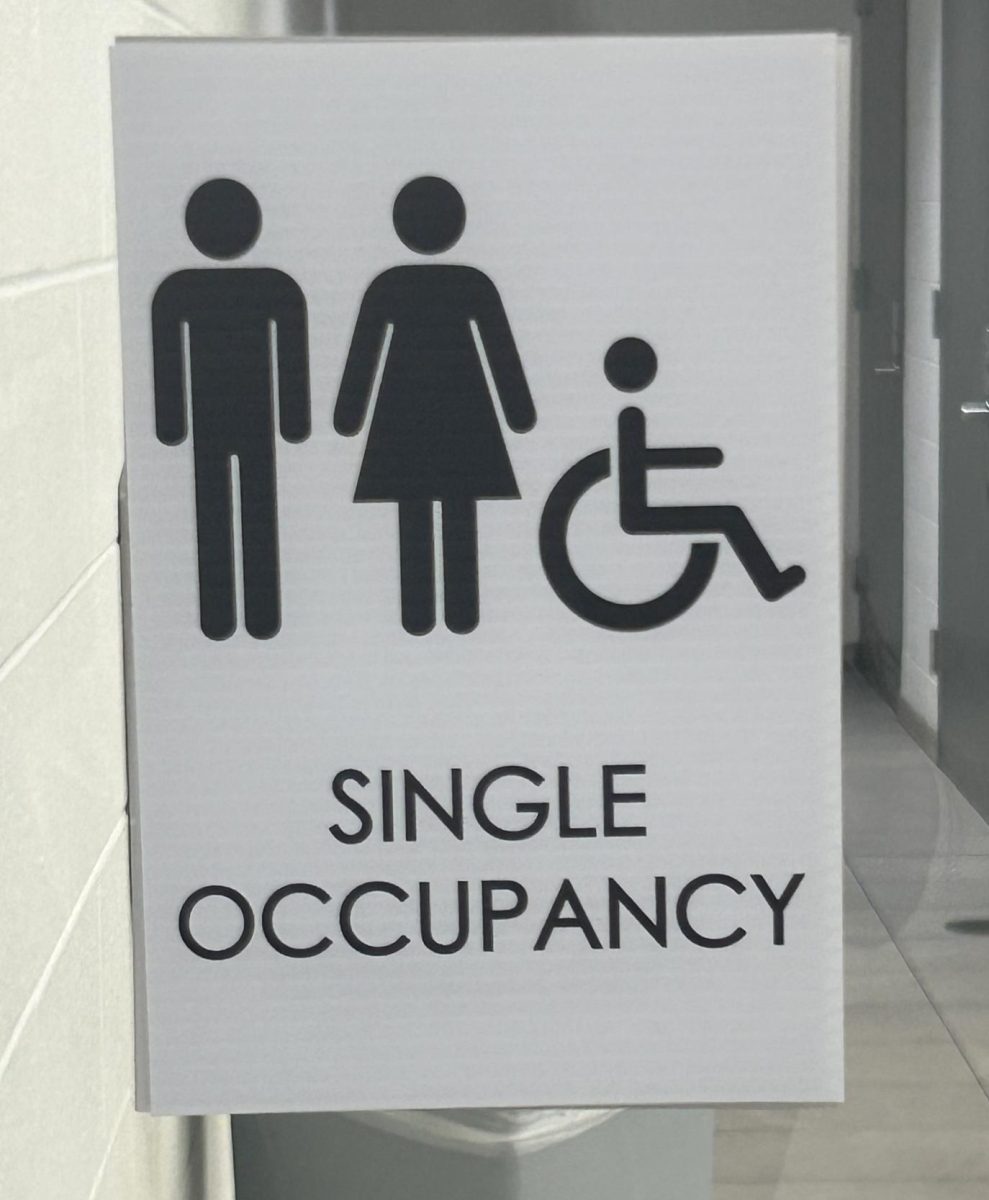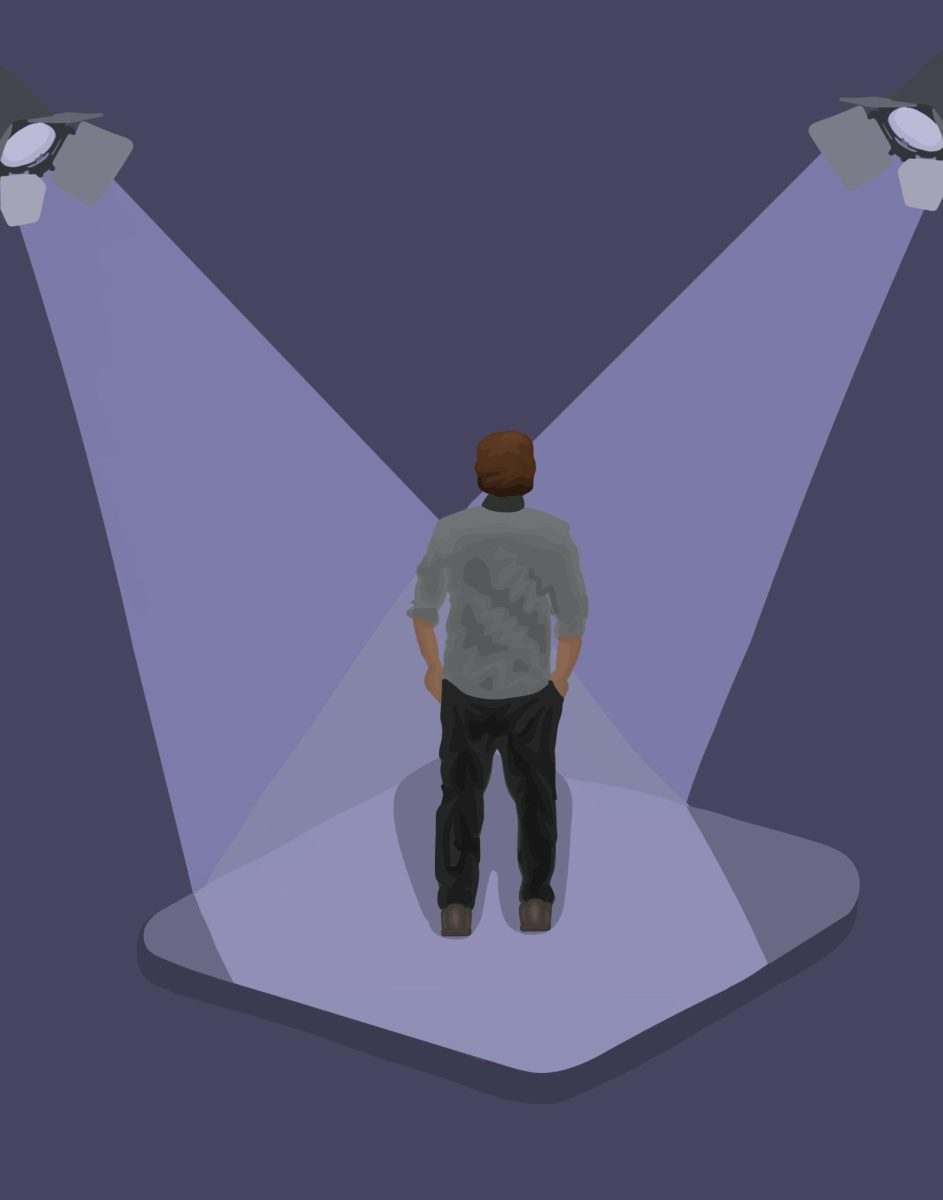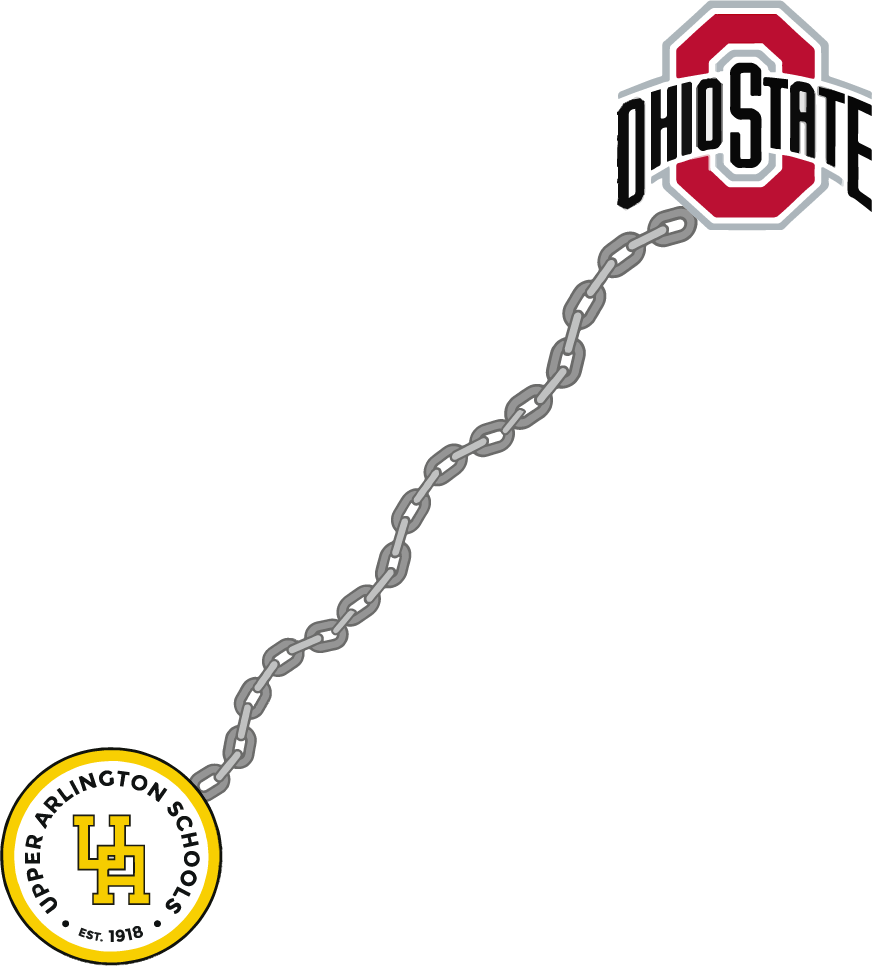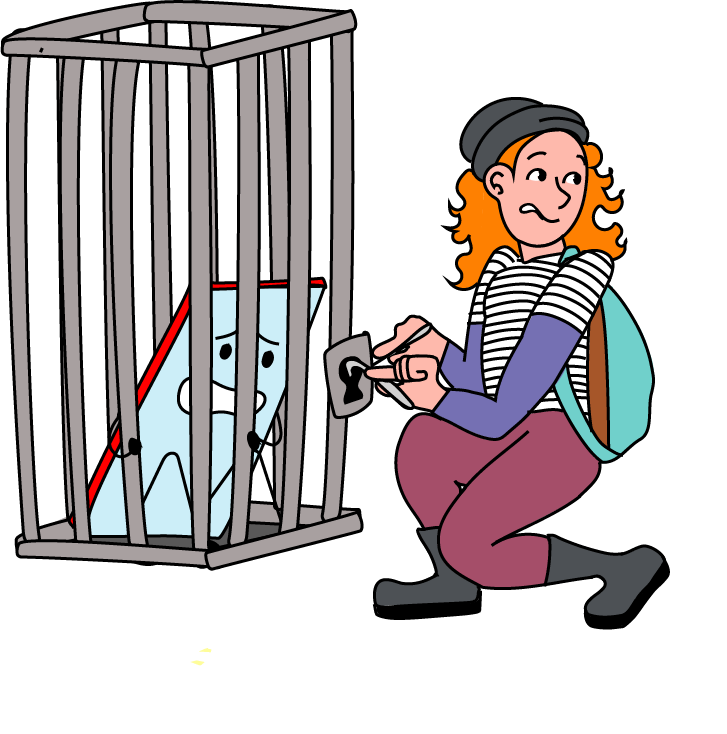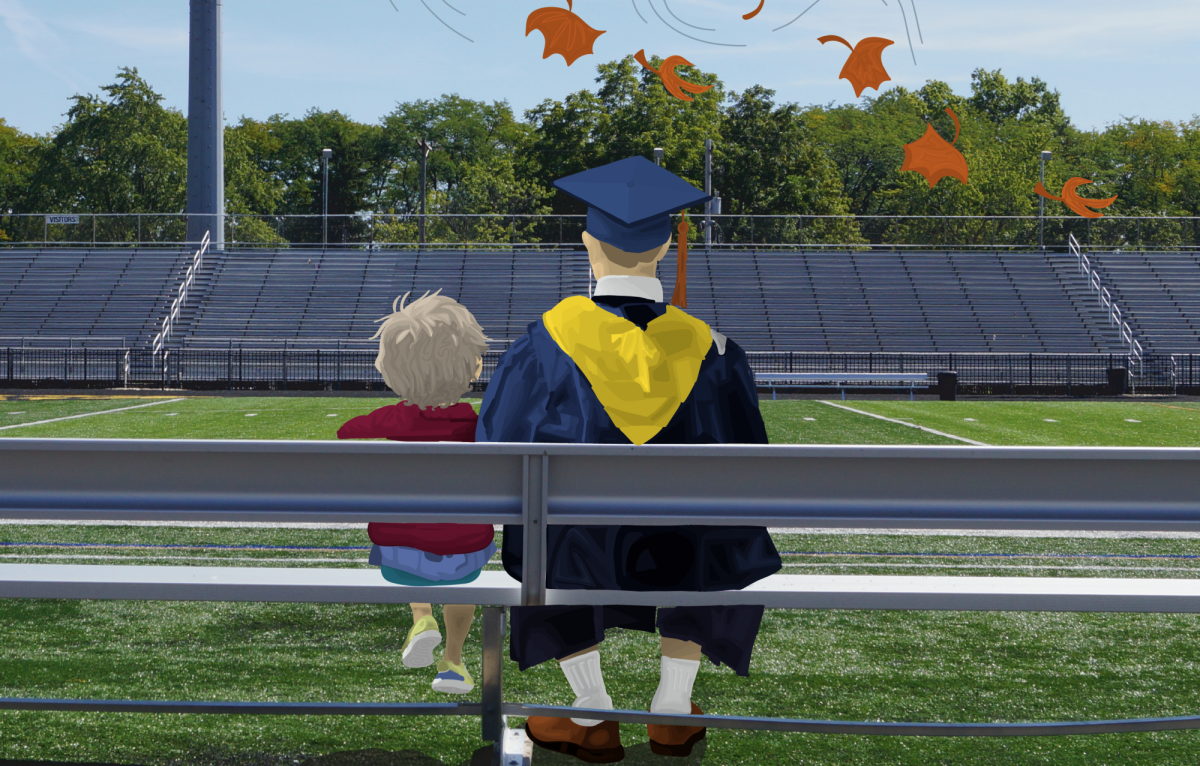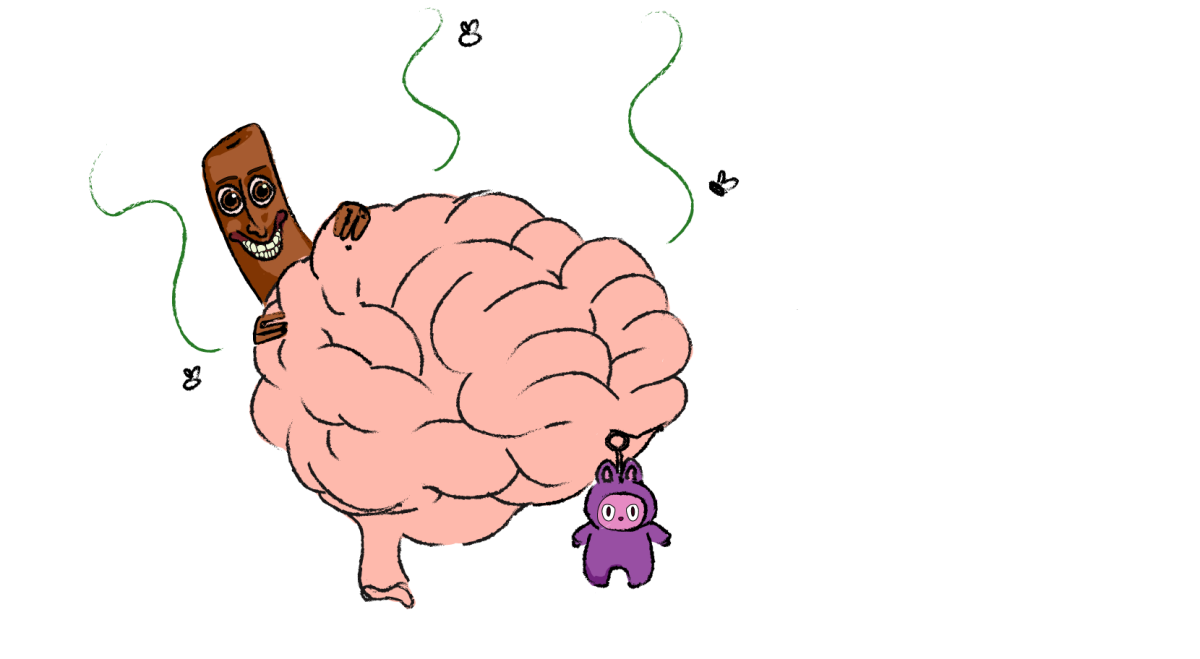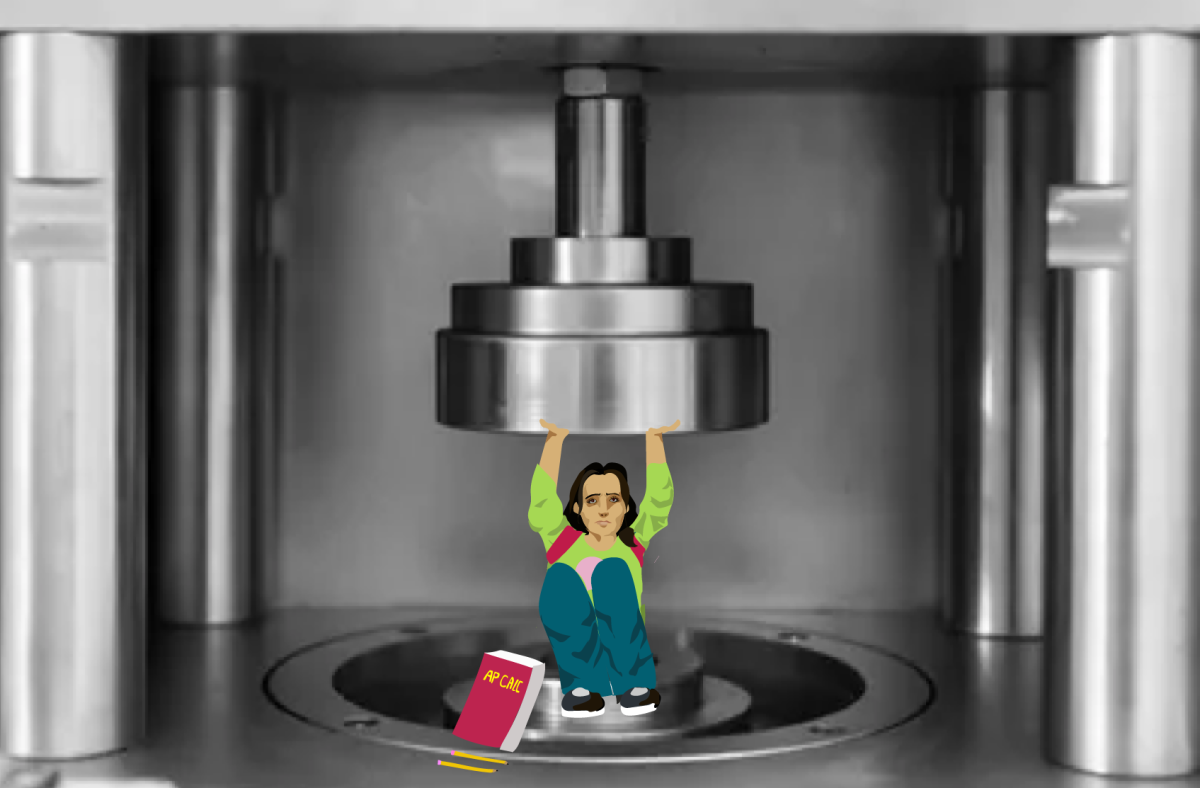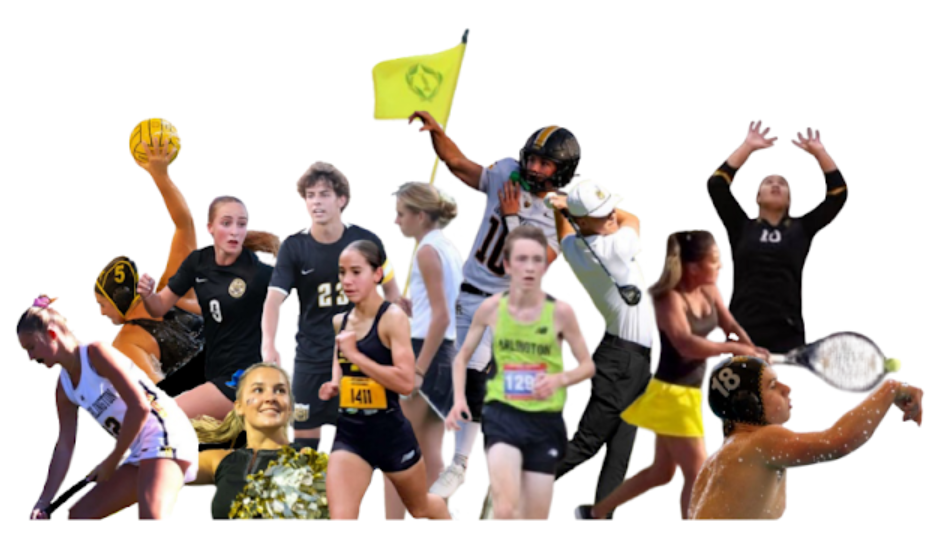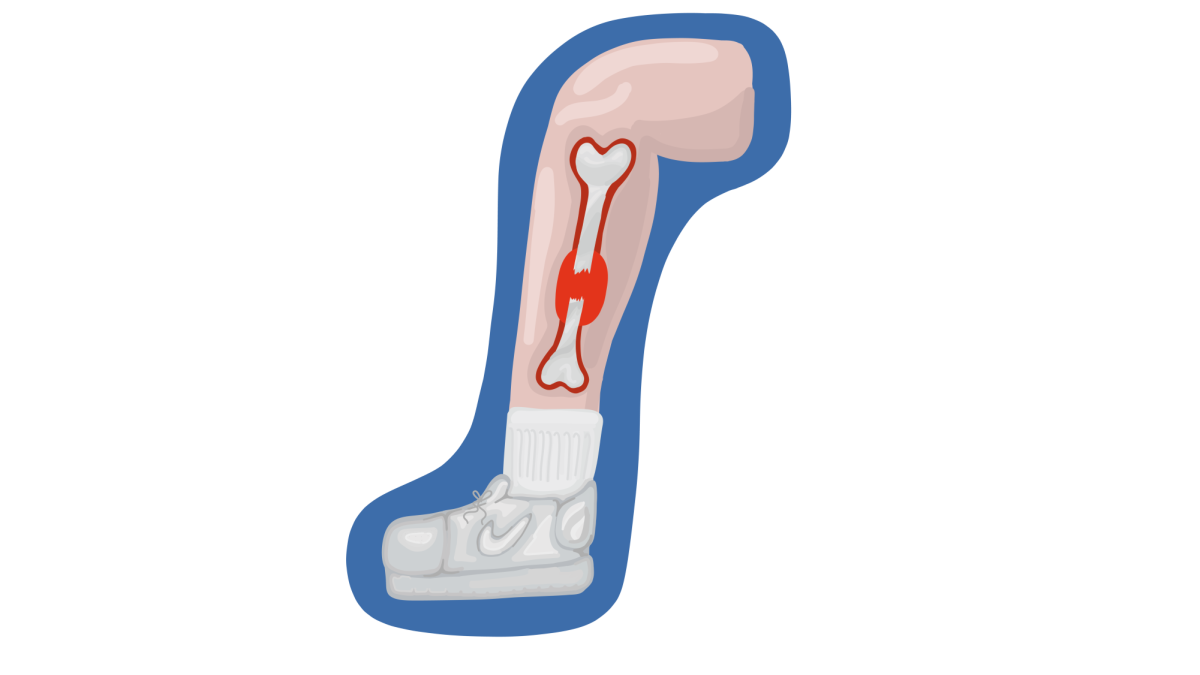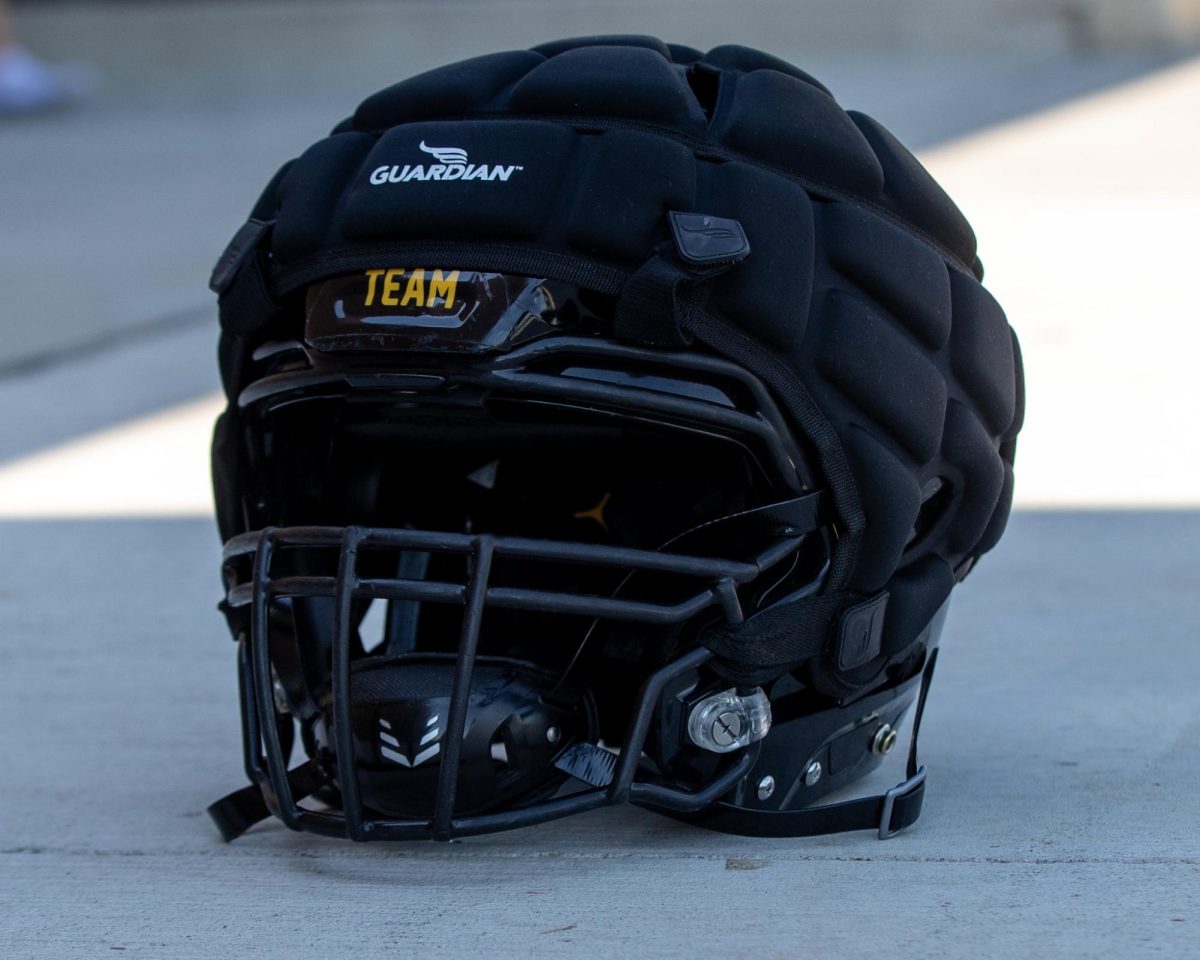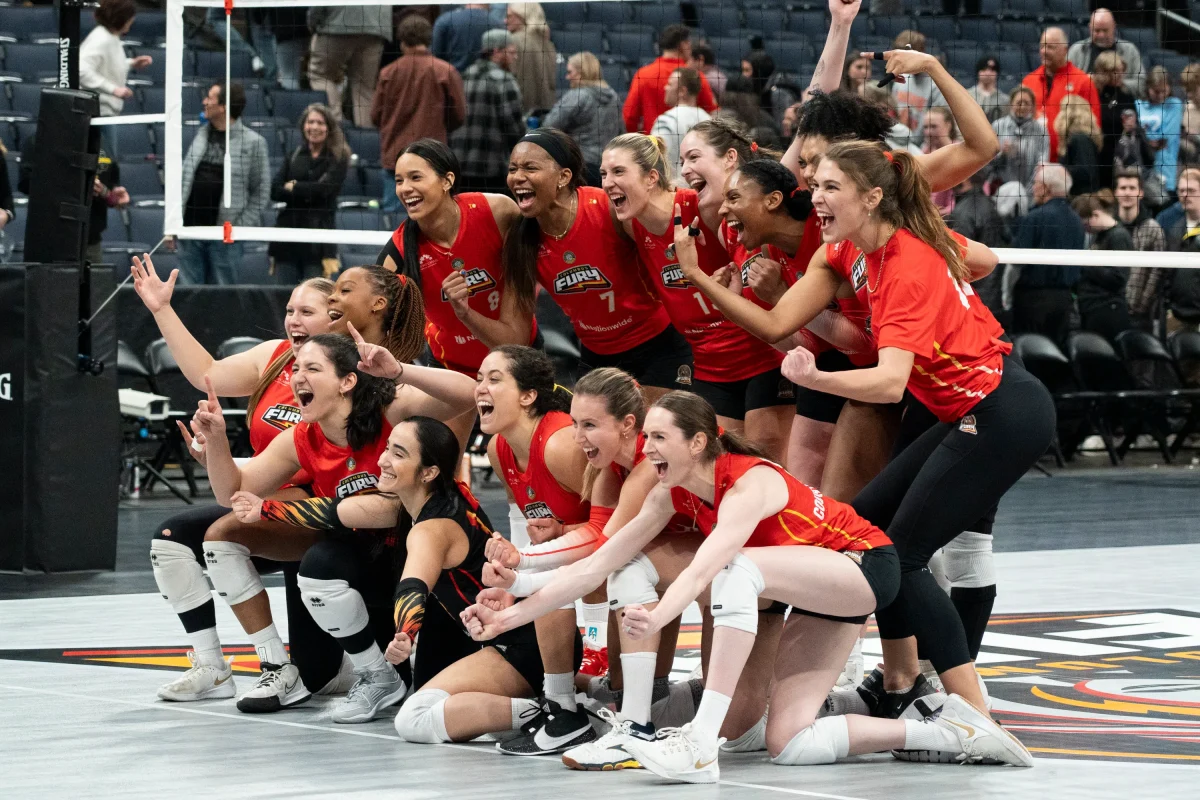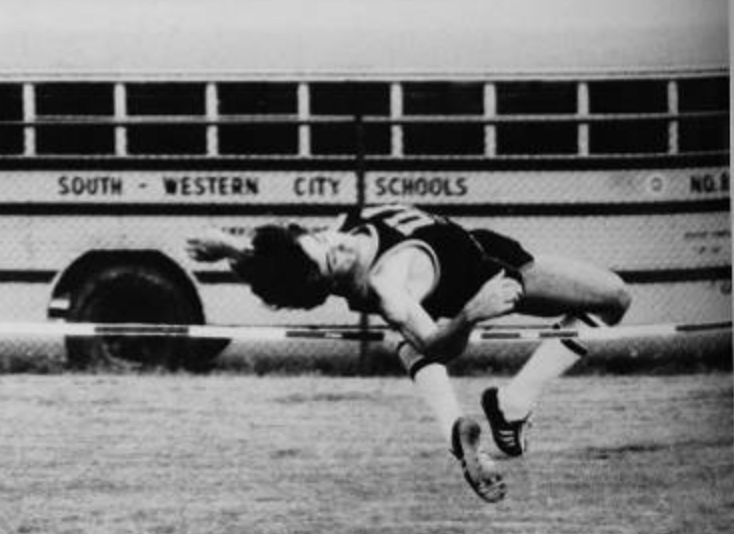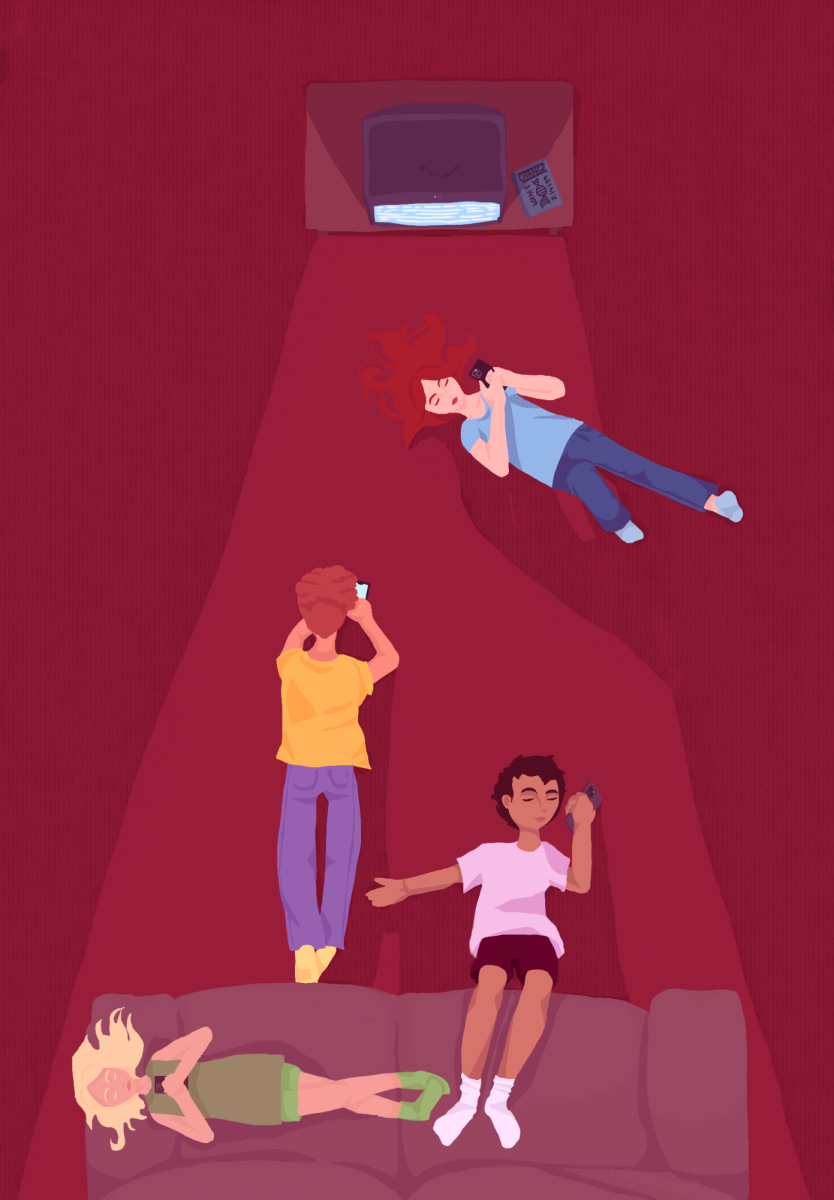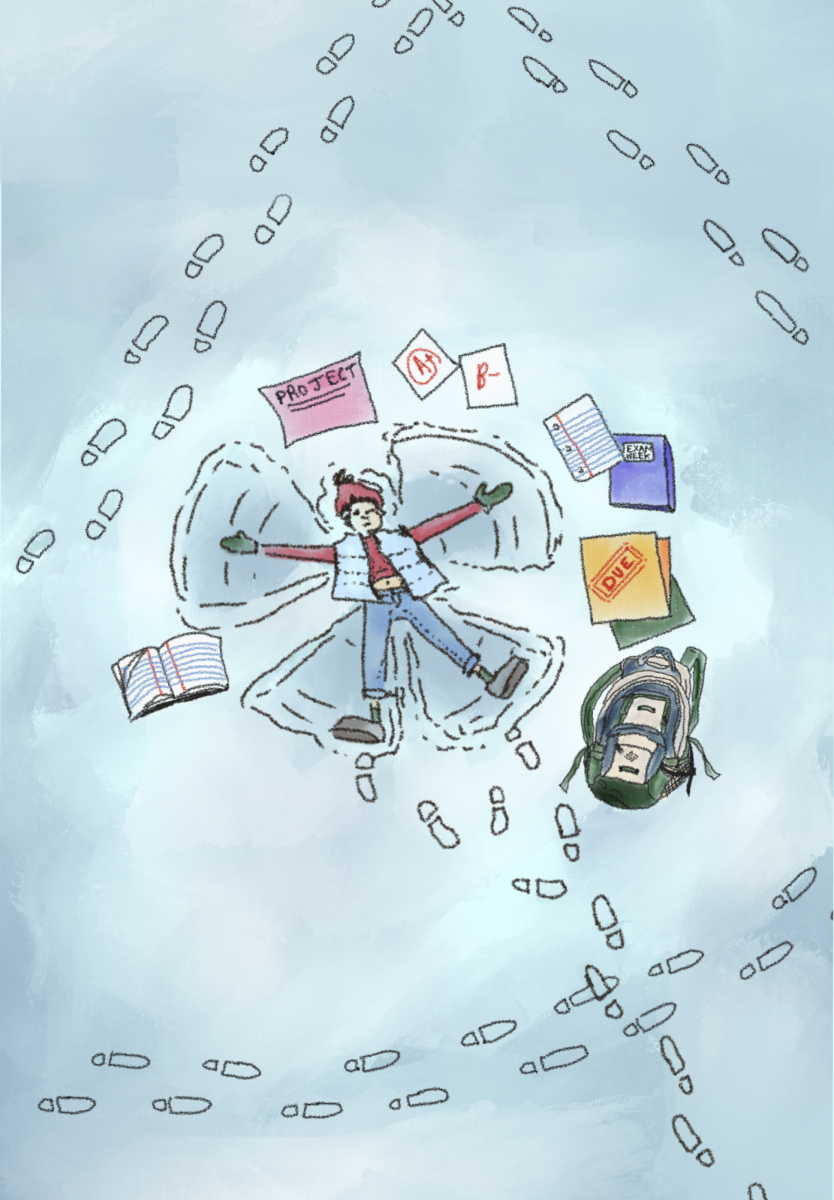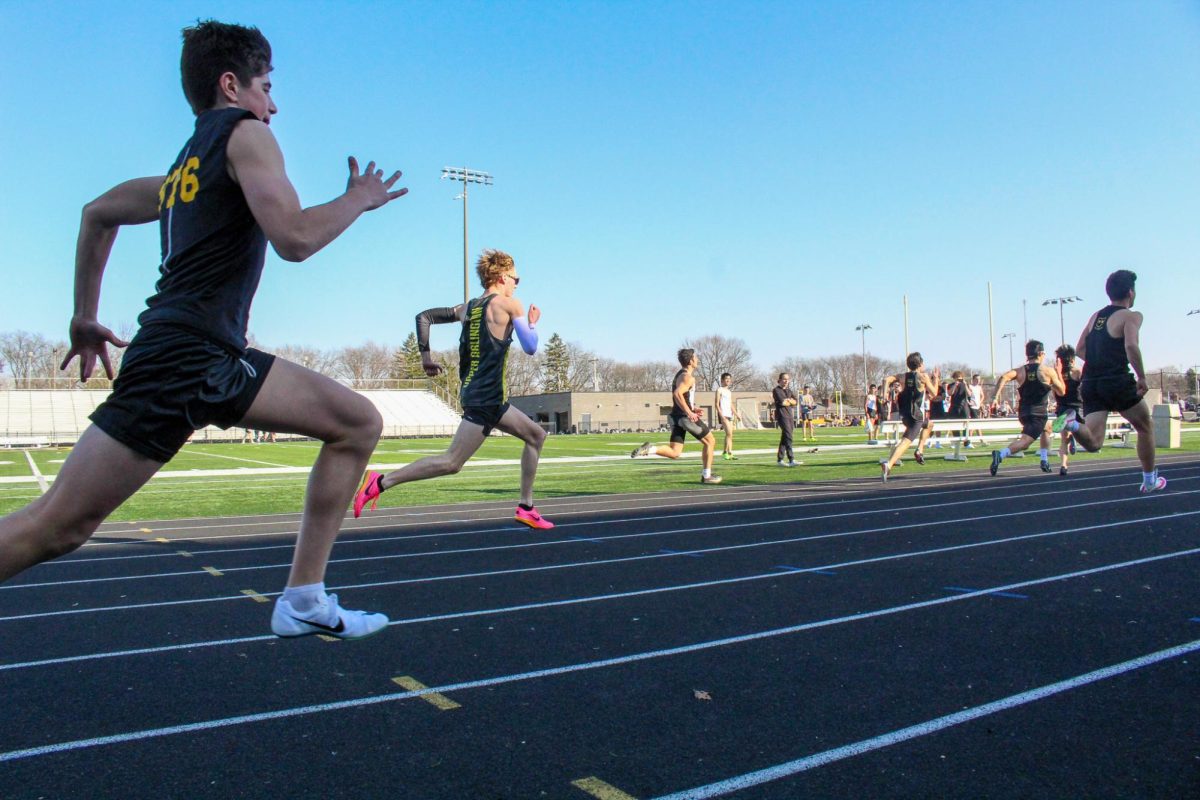Upper Arlington is a proud athletic powerhouse. With 33 varsity sports and 151 state championship titles, it’s no secret that excelling in sports is a top priority at UA. The high school offers an assortment of amenities to help the student-athletes physically prepare themselves for their sport. Ice baths, a credible team of athletic trainers, and a state-of-the-art lifting facility are among these.
Some of the biggest disruptors when it comes to the stability of an athlete’s mental health are injuries. Student-athletes work day in and day out in order to be at their prime during their season. When an injury plagues an athlete, it causes them to adjust to a whole new way of life. The mental burden it takes on an athlete may be undetectable, but the trainers who work with these athletes not only shoulder the responsibility of physically helping these athletes, but also mentally.
One of UA’s athletic trainers, Katelyn Dilley, has worked with a plethora of athletes who struggle with injuries. As she assists athletes on their recovery journey, Dilley witnesses the underlying mental struggle that comes with injury.
“You realize that they have deeper concerns such as, ‘what if I don’t get back to 100%?’ or ‘what if I don’t get back within a certain time frame by a certain game?’” she said. “Or ‘what happens if it just turns around and happens again?’ Helping to reassure, provide them information on that aspect is just as important as what I do with them then hands on as well.”
Social media has given athletes access to valuable information, but it also has the ability to negatively affect them.
“There’s so much information and knowledge out there at our fingertips with the internet and social media and stuff like that,” Dilley said. “Which is great overall, but also can be very debilitating when it’s so easy to see what other people are doing, and then easily you make those comparisons.”
The comparisons that stem from social media but also real life have proven to have a detrimental impact on the eating habits of athletes as well.
Upper Arlington High School’s strength and conditioning coach Kasey White has been coaching for eight years and working full time with OSU since 2018. As a trainer, her goal is to promote a healthier athletic population and environment for student-athletes.
White also commented on the highly competitive culture in athletics now, explaining that the ‘more is more’ mentality is a major cause for poor mental health in athletes.
“Everybody is just driven into the ground a lot of the time and not recovering or putting an emphasis on the recovery piece or the time off piece.”
White said that too much competitiveness and comparison between athletes is unhealthy and dangerous.
“Part of that can be team culture, and part of that can be school culture, and part of that can be that athlete. There’s a scale, there’s a line. If you’re not eating the correct caloric needs for all of that energy expenditure, there’s no way that you’re going to physically make it out of that situation without getting hurt. If you do, you’re very lucky, but it always catches up.”
White says that the struggles of athletes are such a wide spectrum, and it’s important that they know resources are available to them.
“From the mental aspect of things, everybody’s dealing with so many different things. This kind of community [is] very, very affluent, [but] you can’t judge a book by its cover. Kids are dealing with just as many parental issues and home issues, as well as the stress of school because this is a very high-functioning school district,” White said.
White touches on the dangers of how susceptible athletes are to falling into unhealthy patterns, especially when it comes to misinformation or little understanding of the dangers of unhealthy eating habits.
“You can very easily negotiate yourself out of eating enough calories to be able to sustain a body type or mental status, especially when there’s other people that you’re potentially comparing yourself to,” White said.
White noted the importance of understanding that there are resources available to student-athletes who are struggling.
“You didn’t do anything wrong. For the stress that you’re under at this age, for the stuff that you have potentially dealt with in your life up to this point, it’s valid that you’re trying to find a way to be in control. Your feelings are valid, but they’re not healthy. Once it’s all out in the open, it all starts to get better. It’s not a hopeless situation,” she said.
Sports Psychologist at The Ohio State Wexner Medical Center Jameson Crane Sports Medicine Institute Marcia Edwards has worked with athletes at the University of Oklahoma, Clemson University, and The Ohio State University since 2018.
As a professional, Edwards noted her larger perspective and understanding of athletes’ mental health issues.
“Coaches and athletes both think in one or two extremes, they see things in either the good light or bad light. I don’t think that the coaches or athletes really think about ‘Okay, I need to give myself some more grace’,” Edwards said.
Edwards highlighted the importance of keeping a positive mindset in sports in order to maintain a healthier mental status as an athlete.
Edwards said that it’s important not to get caught up in negative self-talk and not to focus on only errors.
“When you get caught up in a particular performance, an error, a mistake, and lingering there, that’s when the mental health of an athlete might start to deteriorate, especially when you feel like you don’t have the support to bounce back due to the certain pressures or expectations,” she said.
Along with negative mindsets, other major causes for athletes struggling with mental health are pressure, expectations, and overly comparing to other athletes.
Edwards said athletes should understand that 100% doesn’t look the same for each athlete or even throughout the days as individuals.
“The need to feel like you’re supposed to be on a certain level all the time, that builds up and can easily lead to burnout. The pressure and the expectations cause more anxiety, [and] more stress, which interferes with performance. So it’s important to be able to navigate ways to cope with stress, pressure, and expectations from others.”
Common mental health struggles like anxiety and depression often look different in student-athletes than how they present in the average population, making it difficult to recognize and understand when an athlete needs support. Edwards said that because of this, it can be difficult to recognize and understand when an athlete is struggling or needs outside support, especially when ordinary signs might not apply to student-athletes since they put their bodies on the line for their sport.
“With depression, we usually associate a sad mood, crying, and can’t get out of bed. That’s not going to be your typical student-athlete. When [they] are experiencing depression and anxiety, they’re high-functioning individuals, they’re going on with their day-to-day, and it’s a lot harder to detect those symptoms.”
Edwards said that sleep issues, irritability, and easy frustration are signs less obvious, but still noticeable in athletes who might be struggling.
“Athletes can be sad, but they might also be throwing themselves into their sport, training extra hard to distract themselves from thoughts that might be recurring. It’s always good to have peers, teammates, and coaches check in because it’s very hard to detect.
Behaviors are much harder to identify in high-functioning student-athletes, academic performance issues and energy levels are less reflective of an athlete’s mental health compared to things like social relationships.
“It’s less about the behaviors and more of being able to modify those thoughts that are lingering and causing distress,” Edwards said. “Their anxiety and depression might be interfering with social relationships, they might see a decline in their social relationships or even their interactions with parents.”
Emma Koffel, President of the Athlete Mental Health Club, noticed a gap in the resources student-athletes are given to deal with their mental health. She started her club with a mission in mind.
“My main goal was to kind of get the word out about mental health,” Koffel said. “Just bringing athletes together and talking about mental health.”
Koffel intended to spread her message in hopes that struggling athletes would have a community to turn to. She hoped to remind athletes that despite the wins and the losses, sports offer so much more.
“I felt like it would show other athletes that sports can be fun if you just think about it in a way that you’re not alone and other athletes are also going through the same thing,” Koffel said.
More recently, the mental health of athletes has become a priority, but it hasn’t always been talked about to the degree it is now. Many athletes still won’t actively seek help if they are struggling.
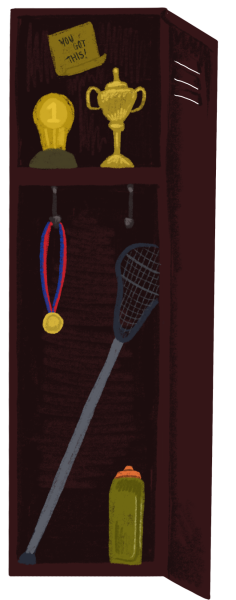
“I never really heard of any mental issues going around with sports so I didn’t really think it was normal for me to have these issues,” Koffel said. “After I figured it out, that it is something that can be solved and that it’s something that’s also very relevant in the sports world, it kind of just made me very passionate about athlete mental health.”
The club has recognized that athletes who are struggling with their mental health, many times lack the resources necessary to help themselves.
“We’ve been working with Athletes against Anxiety and Depression nonprofit and they raise money for athletes that can’t afford therapy or psychology to deal with their own issues,” Koffel said. “That’s really important to us to make sure that everyone has the same access as other people.”
Koffel’s athletic experiences and time playing team sports has taught her how to react to a teammate who is struggling in their sport.
“Start with something positive before saying something negative about their playing,” Koffel said. “That really makes an impact.”


